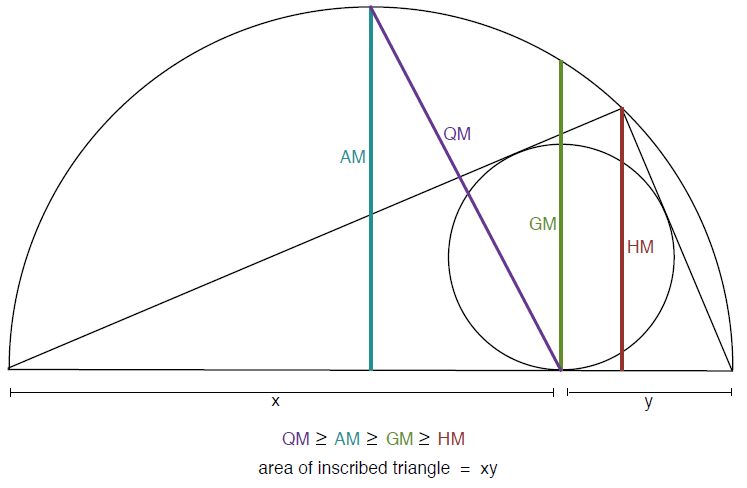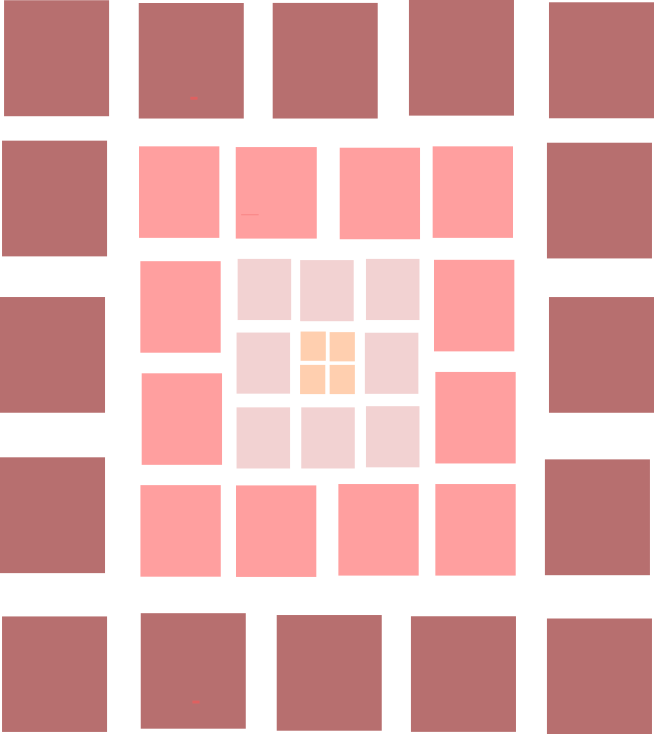Take any 2 circles among the given blue circles. Draw 2 lines inclined at $60 ^{\circ}$ to each other . For every such pair of points we get a corresponding yellow point. If the total number of blue circles is $n$,the number of ways to select 2 circles = $\binom{n}{2}$. Count the total number of yellow circles. Now I guess it is easy to see that: $$1+2+\cdots + (n-1) = \binom{n}{2}$$


